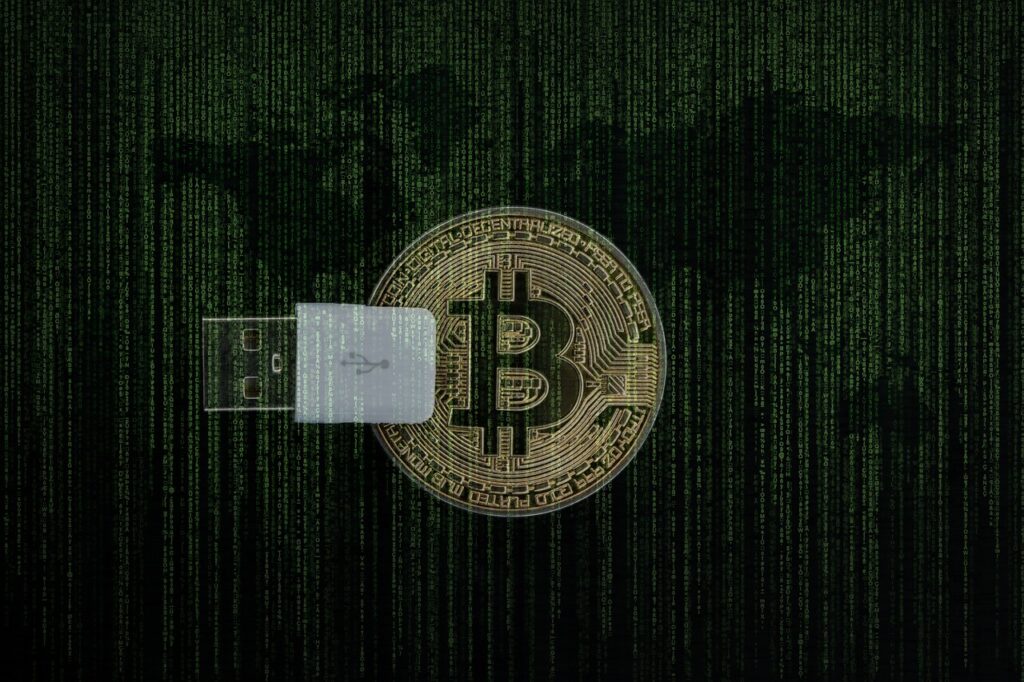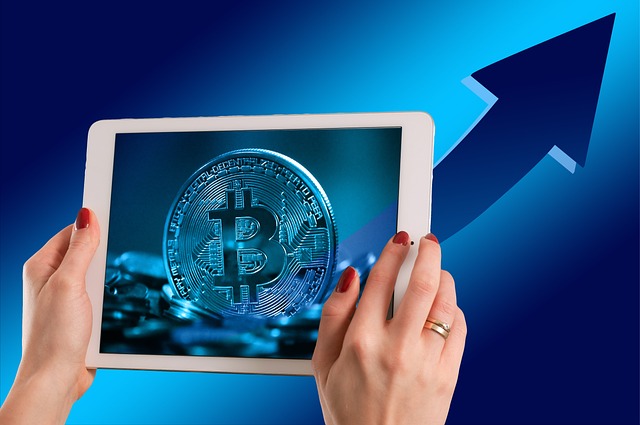Decentralized Finance vs. Traditional Banking: Benefits Explored
Decentralized Finance vs. Traditional Banking: Benefits Explored

Understanding the Concept of Decentralized Finance
Decentralized Finance, also known as DeFi, has emerged as a groundbreaking concept in the financial world. It aims to transform and modernize traditional banking systems by leveraging blockchain technology. Unlike traditional finance, which relies on centralized intermediaries such as banks, DeFi operates on a decentralized network. This means that transactions and other financial activities are conducted directly between participants, eliminating the need for intermediaries.
One of the key principles of DeFi is the concept of smart contracts. These are self-executing contracts that automatically facilitate, verify, and enforce the terms agreed upon by the involved parties. By using blockchain technology, DeFi enables the creation of transparent, immutable, and auditable financial systems. This transparency is in stark contrast to traditional banking systems, where the inner workings and decision-making processes can often be opaque. With DeFi, participants have greater control over their finances and can access a wide range of financial services in a more inclusive and open manner.
The Evolution of Traditional Banking Systems
Traditional banking systems have come a long way from their humble beginnings. In the past, banks primarily served as intermediaries between savers and borrowers, providing a safe place to store money and access credit. However, as technology advanced and the needs of customers evolved, traditional banks had to adapt to stay relevant. The introduction of online banking and ATMs revolutionized how customers interacted with their accounts, providing convenience and accessibility like never before.
Furthermore, the evolution of traditional banking systems also brought about changes in the services offered. Alongside basic savings and lending, banks expanded their offerings to include investment services, insurance, and wealth management. This diversification allowed customers to access a wide range of financial products and services under one roof, simplifying their financial lives and providing a one-stop solution for their needs.
As the world becomes more interconnected and technology continues to advance, it will be interesting to see how traditional banking systems continue to evolve. With the rise of decentralized finance and the increasing demand for digital banking solutions, traditional banks will need to explore new avenues to remain competitive. The future of traditional banking lies in striking a balance between the convenience and innovation offered by decentralized finance and the trusted stability provided by their long-established presence in the financial industry.
Accessibility and Inclusion: How Decentralized Finance Benefits All
Decentralized finance, also known as DeFi, is revolutionizing the way individuals access and participate in the global financial system. One of the key advantages of DeFi is its ability to increase accessibility and inclusion for all individuals, regardless of their background or circumstances. Unlike traditional financial institutions that often require extensive documentation, credit history, or physical presence, DeFi enables anyone with an Internet connection to participate in various financial activities such as lending, borrowing, and investing.
This newfound accessibility is particularly beneficial for individuals in underserved communities or developing countries where traditional banking services may be limited or non-existent. With DeFi, individuals can bypass the restrictions imposed by traditional intermediaries, opening up a world of financial opportunities. This not only empowers individuals to take control of their own finances but also provides access to previously unavailable tools and services, fostering financial inclusion on a global scale.

Security and Transparency: Exploring the Advantages of Decentralized Finance
Decentralized finance, often referred to as DeFi, has gained considerable attention for its emphasis on security and transparency. Unlike traditional banking systems, which rely heavily on intermediaries and central authorities, DeFi operates on a decentralized network of computers known as blockchain. This approach ensures that transactions and financial activities are recorded and verified in a transparent and tamper-proof manner. With no single point of failure, decentralization mitigates the risks of hacking, fraud, and manipulation that can plague traditional financial systems. By leveraging blockchain technology, DeFi unlocks new levels of security and transparency, offering users greater confidence in their financial interactions.
One of the key advantages of decentralized finance lies in its ability to offer financial services that are open and accessible to all. In traditional banking, individuals and businesses may face various barriers, such as geographical restrictions, high transaction fees, and the need for trust in intermediaries. However, with DeFi, anyone with an internet connection can access a wide range of financial services without the need for a middleman. This inclusivity opens up opportunities for individuals who may have been underserved or excluded from traditional banking systems. Moreover, the transparency inherent in DeFi allows users to easily track and audit their transactions, ensuring that their funds are being utilized as intended. By removing barriers and enhancing transparency, decentralized finance empowers individuals and promotes financial inclusivity.
The Role of Intermediaries: Comparing Traditional Banking and Decentralized Finance
In traditional banking systems, intermediaries play a pivotal role in facilitating various financial transactions. These intermediaries, such as banks and financial institutions, act as a bridge between individuals, businesses, and the financial market. They provide services like account management, loans, and investment opportunities. However, decentralized finance aims to eliminate the need for intermediaries by utilizing blockchain technology.
With decentralized finance, individuals can directly access financial services without relying on intermediaries. Blockchain technology enables peer-to-peer transactions, cutting out the middleman and reducing transaction costs. Additionally, decentralized finance platforms are built on transparent and immutable ledgers, ensuring that transactions are secure and tamper-proof. This level of transparency greatly benefits users, as they can verify the accuracy and integrity of transactions without relying on intermediaries. Furthermore, decentralized finance promotes financial inclusion by allowing anyone with internet access to participate, regardless of their geographic location or economic status. This opens up opportunities for those who have historically been excluded from traditional banking systems. Overall, the role of intermediaries greatly differs in traditional banking and decentralized finance, with the latter providing increased accessibility and transparency for users.
Cost Efficiency and Lower Fees: A Look at the Financial Benefits of Decentralized Finance
Decentralized finance, also known as DeFi, has revolutionized the financial landscape by offering cost efficiency and lower fees to its users. Traditional banking systems have long been associated with hefty fees for transactions, loans, and other financial services. However, with DeFi, the need for intermediaries and their charges is eliminated, resulting in significant cost savings for individuals and businesses alike.
One of the primary reasons for the cost efficiency in DeFi is the absence of intermediaries like banks. In traditional banking systems, various middlemen are involved in every financial transaction, charging fees for their services. With DeFi, the technology itself acts as the intermediary, executing transactions through smart contracts on blockchain platforms. This not only reduces the time taken for transactions but also eliminates the need for multiple intermediaries, thus significantly reducing costs. Additionally, decentralized finance platforms often operate on a peer-to-peer basis, allowing users to interact directly with one another. This direct interaction further cuts down on costs by bypassing the need for intermediaries altogether.
• DeFi eliminates the need for intermediaries like banks, resulting in cost savings.
• Transactions are executed through smart contracts on blockchain platforms, reducing time and costs.
• Peer-to-peer interaction allows users to interact directly with one another, bypassing intermediaries.
Innovation and Flexibility: How Decentralized Finance is Changing the Game
Decentralized finance, also known as DeFi, has proven to be a game-changer in the financial industry, bringing unparalleled innovation and flexibility to the table. Unlike traditional banking systems, which are often centralized and rely on intermediaries, DeFi operates on a decentralized network, utilizing blockchain technology to enable peer-to-peer transactions and remove the need for intermediaries. This decentralized nature grants individuals greater control over their financial ventures, empowering them with the freedom to transact directly with one another, without the involvement of third parties.
One of the key ways in which DeFi is revolutionizing the financial landscape is through its open and permissionless nature. Unlike traditional banking systems that often require extensive documentation and lengthy approval processes, DeFi platforms are open to anyone who has access to the internet and a compatible device. This accessibility breaks down barriers, enabling individuals from all walks of life, regardless of their socio-economic status or location, to participate in financial activities. This inclusivity is a powerful force for financial inclusion, as it provides opportunities for the unbanked and underbanked populations to access financial services, thereby contributing to their economic empowerment. Moreover, the flexibility of DeFi allows for the creation and integration of various financial products and services, enabling users to tailor their financial experiences to their specific needs and preferences. Whether it be lending, borrowing, investing, or even creating new financial instruments, DeFi offers individuals the flexibility to explore and engage in a wide range of possibilities.
Global Reach: Examining the International Potential of Decentralized Finance
Decentralized finance (DeFi) has the potential to revolutionize the financial landscape on a global scale. One of the key advantages of DeFi is its accessibility to anyone with an internet connection, transcending geographical boundaries and enabling individuals from different countries to participate in the global financial ecosystem. This international potential of DeFi opens up new opportunities for individuals in developing countries who may not have had access to traditional banking services. With DeFi, they can now engage in activities such as lending, borrowing, and earning interest on their assets without relying on a centralized financial institution.
Furthermore, DeFi promotes financial inclusion by providing access to individuals who are excluded from the traditional banking system. In many countries, people from marginalized communities, the unbanked, and those with limited financial resources often face restrictions when trying to open a bank account or obtain credit. DeFi eliminates these barriers by allowing individuals to directly interact with the financial ecosystem through their smartphones or computers. This not only empowers individuals to take control of their own financial activities but also enables them to participate in global markets, access investment opportunities, and build wealth regardless of their location or socioeconomic status. The global reach of DeFi embodies the promise of a more inclusive and equitable financial system.
Risk Management and Regulation: Analyzing the Challenges of Decentralized Finance
Decentralized finance (DeFi) has gained significant attention in recent years due to its potential to revolutionize the traditional financial system. However, with this innovation comes several challenges related to risk management and regulation.

Another challenge lies in ensuring transparency and accountability within the DeFi space. While traditional banking systems are subject to regular audits and regulatory oversight, decentralized finance operates through smart contracts and blockchain technology, which can be difficult to regulate effectively. This lack of oversight can make it challenging to identify and address fraudulent activities or market manipulation, potentially exposing investors to significant financial risks. Additionally, the absence of established legal frameworks and supervisory structures creates uncertainties around investor protection and dispute resolution, further complicating the risk management aspect of decentralized finance.
The Future of Finance: Decentralized Finance and Traditional Banking Coexisting
The future of finance seems to be heading towards a coexistence of decentralized finance and traditional banking systems. While many have predicted the demise of traditional banks with the rise of decentralized finance, the reality is that both can complement each other in providing financial services to individuals and businesses.
Decentralized finance offers a range of benefits such as accessibility, lower fees, and innovation. It allows individuals to have greater control over their finances, with the ability to access financial services without relying on intermediaries.

As we look towards the future, it’s clear that a hybrid model of finance, combining the strengths of both decentralized finance and traditional banking, could provide the best of both worlds. Individuals could benefit from the flexibility and accessibility offered by decentralized finance, while still having the stability and expertise of traditional banks. It’s likely that banks will adapt and incorporate decentralized finance into their operations, creating new opportunities and ensuring the financial needs of all individuals and businesses are met. So, rather than competing against each other, the future of finance may well see decentralized finance and traditional banking coexisting and working together to shape a more inclusive and efficient financial system.
What is decentralized finance?
Decentralized finance, also known as DeFi, refers to the use of blockchain technology and smart contracts to create financial systems that operate without the need for intermediaries like banks.
How does decentralized finance benefit everyone?
Decentralized finance promotes accessibility and inclusion by allowing anyone with an internet connection to participate in financial activities, regardless of their background or location.
What are the advantages of decentralized finance in terms of security and transparency?
Decentralized finance provides increased security and transparency through the use of blockchain technology, making it harder for fraudulent activities to occur and enabling users to verify transactions on a public ledger.
How does decentralized finance compare to traditional banking in terms of intermediaries?
Unlike traditional banking, decentralized finance eliminates the need for intermediaries, allowing individuals to have full control over their own finances without relying on a centralized authority.
Does decentralized finance offer any financial benefits?
Yes, decentralized finance often offers cost efficiency and lower fees compared to traditional banking, allowing users to save money and maximize their financial resources.
How is decentralized finance changing the game in terms of innovation and flexibility?
Decentralized finance is revolutionizing the financial sector by introducing new and innovative financial products and services, while also providing users with the flexibility to customize and personalize their financial experiences.
Can decentralized finance have a global reach?
Absolutely! Decentralized finance has the potential to reach individuals all around the world, regardless of their geographical location, opening up new opportunities for financial inclusion on a global scale.
What are the challenges of decentralized finance when it comes to risk management and regulation?
As decentralized finance operates outside the traditional regulatory framework, there are challenges in terms of establishing effective risk management practices and implementing appropriate regulations to protect users and prevent illegal activities.
Can decentralized finance and traditional banking coexist in the future?
Yes, it is possible for decentralized finance and traditional banking to coexist in the future. While decentralized finance offers numerous advantages, traditional banking still plays a crucial role in the financial ecosystem, and both can complement each other to provide a wider range of financial services to users.
Todays Featured Product:
Buy, exchange and grow your crypto securely with a Ledger hardware wallet, combined with the Ledger Live app. It’s never been easier to keep your crypto safe and accessible. Buy direct from Ledger.com and get todays Special Offers Here.




